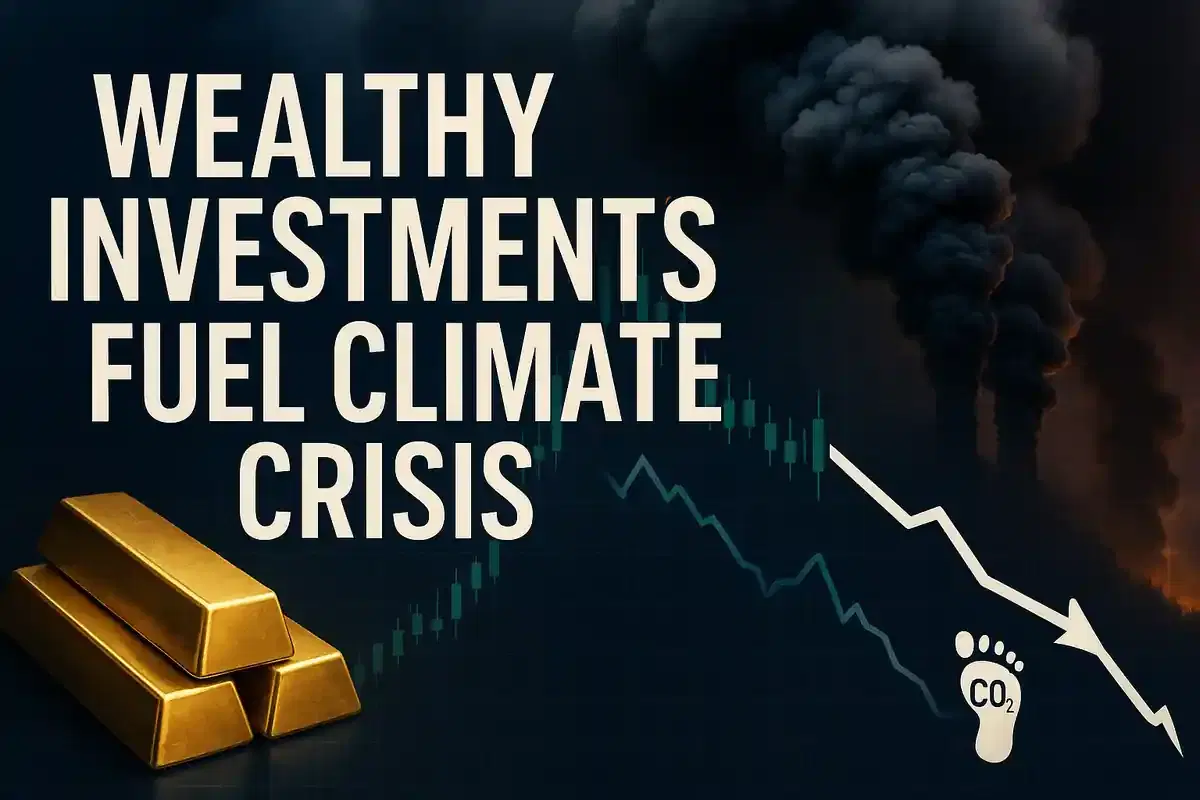Wealthy Individuals Drive Climate Crisis More Through Investments Than Consumption, Report Says; Carbon Tax on Assets Proposed
Economy
|
29th October 2025, 10:21 AM

▶
Short Description :
Detailed Coverage :
Headline: Wealthy Individuals' Asset Ownership Drives Climate Crisis, Report Highlights
Summary: A comprehensive report by the World Inequality Lab, co-authored by economists Lucas Chancel and Cornelia Mohren, establishes a deep connection between wealth inequality and climate inequality. The research emphasizes that the wealthiest individuals contribute disproportionately to greenhouse gas emissions not primarily through their consumption patterns, but through their extensive ownership of assets and investments in high-carbon industries.
Key Findings: The report states that emissions attributed to the wealthiest 1% based on their asset ownership are up to 2-3 times higher than estimates based solely on their consumption. Globally, the top 1% account for 41% of emissions linked to private capital ownership, compared to 15% from consumption-based emissions. This means an individual in the top 1% can have per capita emissions from asset ownership 680 times higher than someone in the bottom 50%.
Proposed Solution: As an interim measure, especially when a complete ban on new fossil fuel investments is not feasible, the report advocates for taxing the carbon content of assets and financial portfolios. This approach differs from taxing fossil fuels directly, which often gets passed on to consumers who may lack alternatives. By taxing investments, the burden falls on producers, potentially encouraging them to diversify away from high-carbon assets and redirecting capital flows towards more sustainable options.
Impact: This proposal could significantly alter investment strategies, potentially leading to a reallocation of capital from fossil fuels to renewable energy and other low-carbon sectors. It might also influence financial market regulations and corporate environmental, social, and governance (ESG) reporting.
Impact Rating: 7/10
Difficult Terms:
Greenhouse Gases (GHGs): Gases that trap heat in the atmosphere, contributing to global warming and climate change. Examples include carbon dioxide and methane. Consumption-based emissions: Greenhouse gas emissions associated with the final use of goods and services, regardless of where they were produced. Wealth-based emissions / Asset ownership emissions: Greenhouse gas emissions linked to an individual's or entity's ownership of assets, such as stocks, bonds, and real estate, particularly those invested in high-emitting industries like fossil fuels. Carbon intensity: A measure of the greenhouse gas emissions produced per unit of economic activity or per unit of product or service. Financial portfolios: A collection of investments owned by an individual or institution, including stocks, bonds, mutual funds, and other securities.